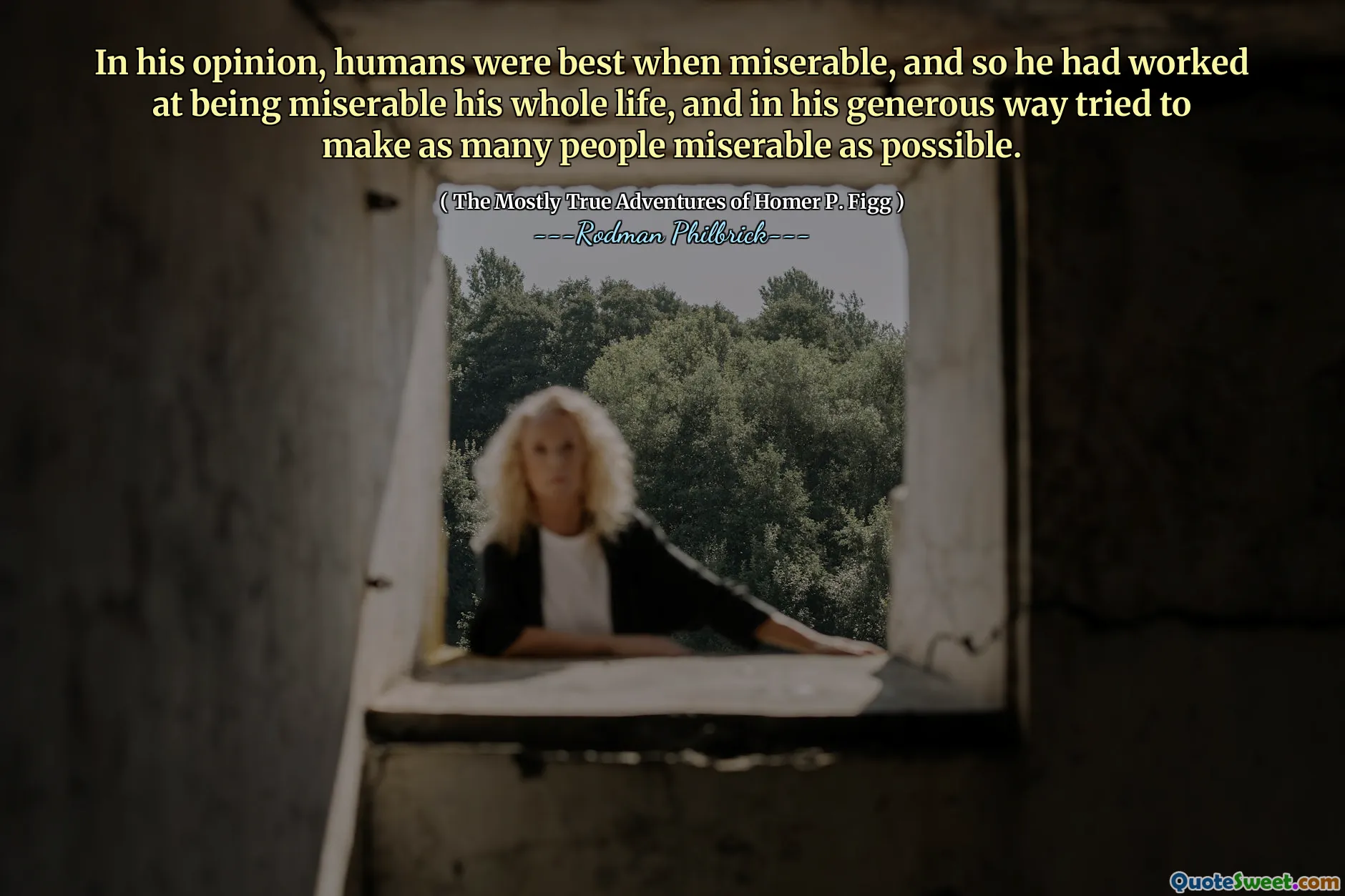
In his opinion, humans were best when miserable, and so he had worked at being miserable his whole life, and in his generous way tried to make as many people miserable as possible.
The character in "The Mostly True Adventures of Homer P. Figg" believes that human beings reach their peak when they are unhappy. This perspective leads him to pursue a life of misery, suggesting that he feels vibrant and alive only in states of sorrow. His actions are not just self-serving; he also seeks to spread this misery to those around him, reflecting a deep-seated belief that suffering is an essential part of the human experience.
This viewpoint presents a bleak and cynical outlook on life, challenging the notion that happiness or contentment is beneficial. The character’s commitment to misery serves as a commentary on the complexities of human emotions and relationships, highlighting how one individual's despair can ripple out and impact others. Overall, the narrative explores themes of suffering and the paradox of finding meaning in unhappiness.











